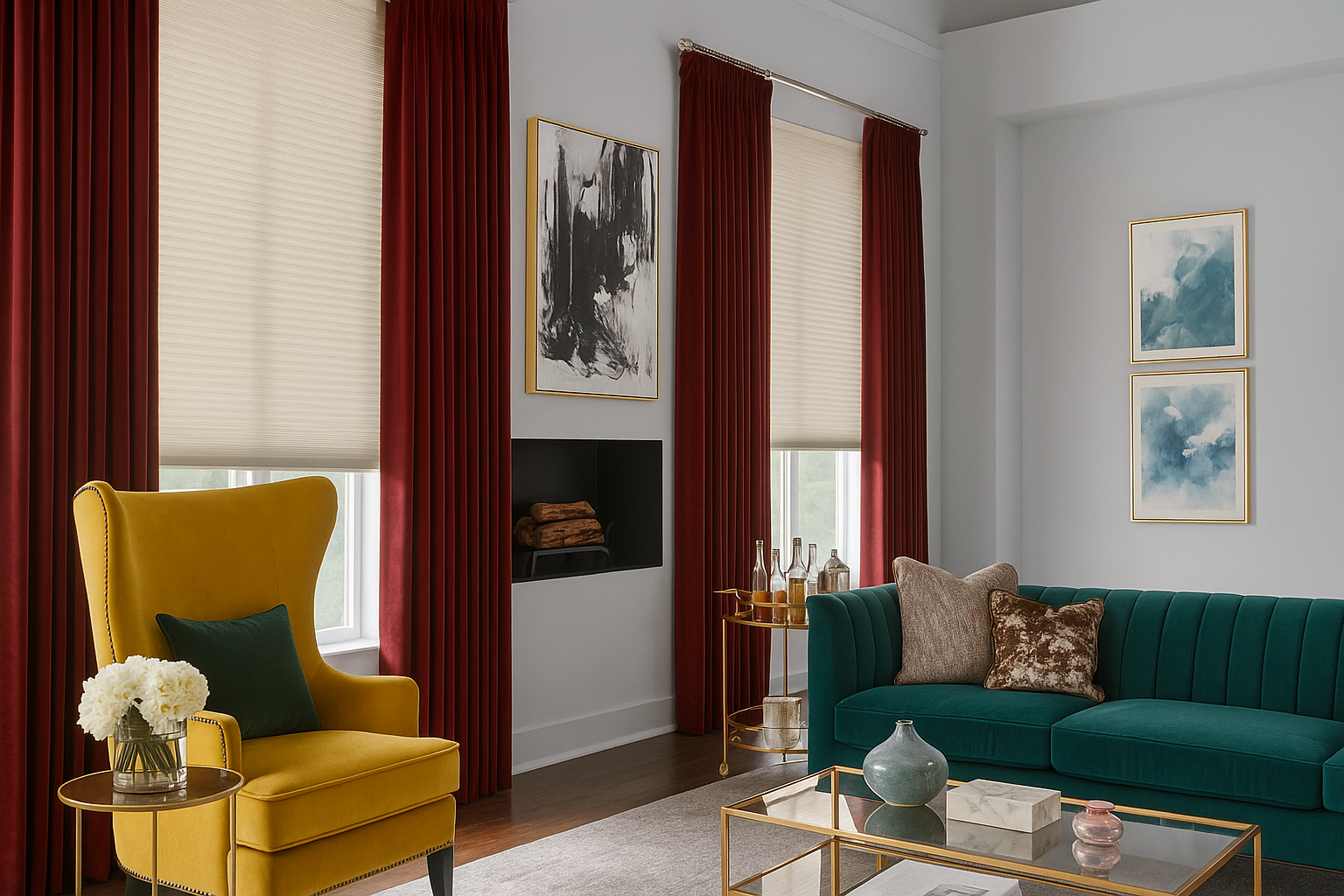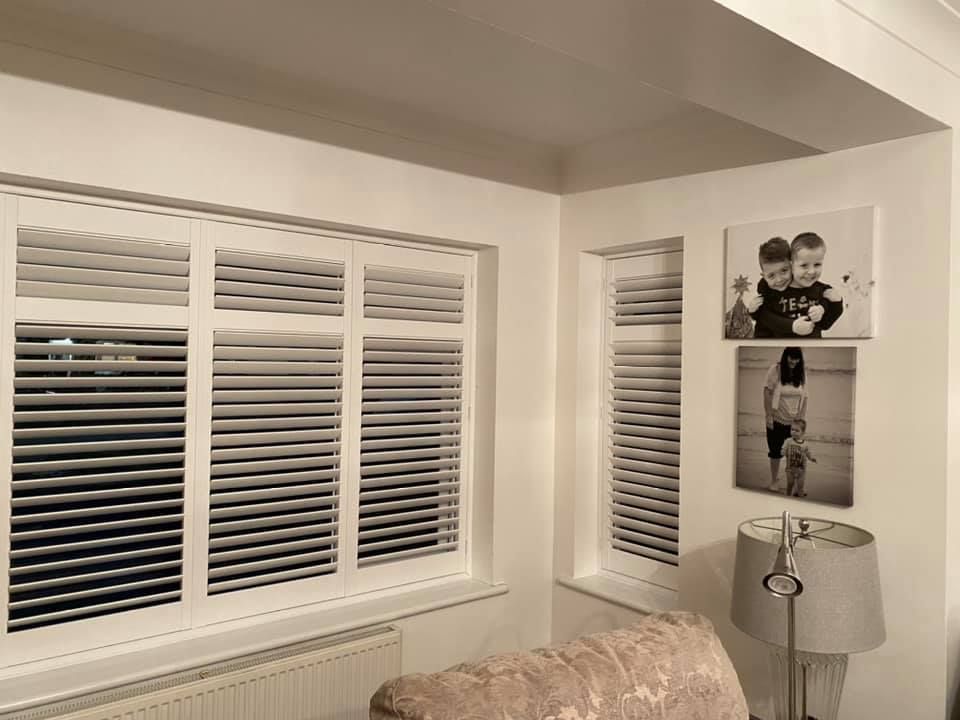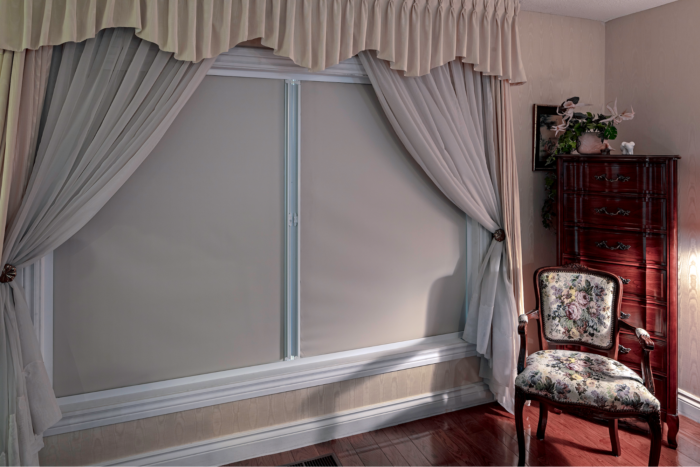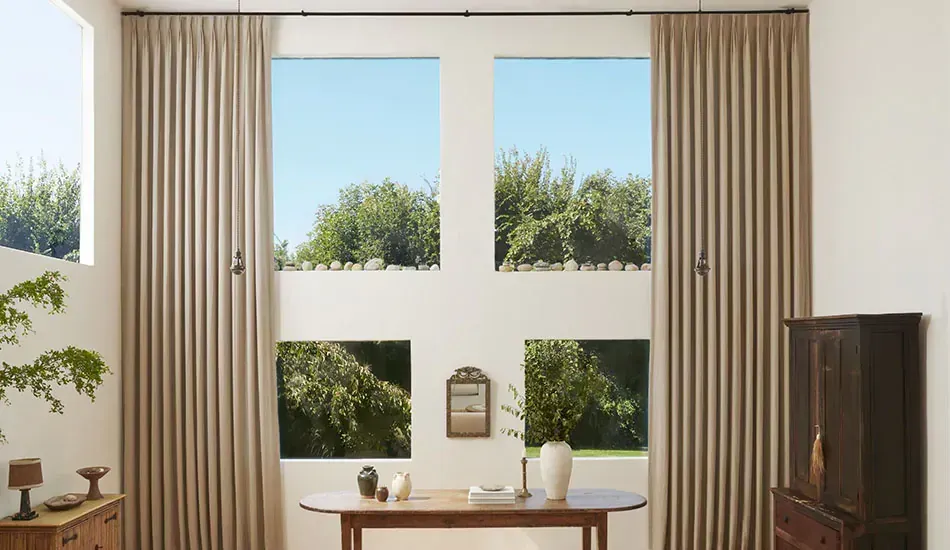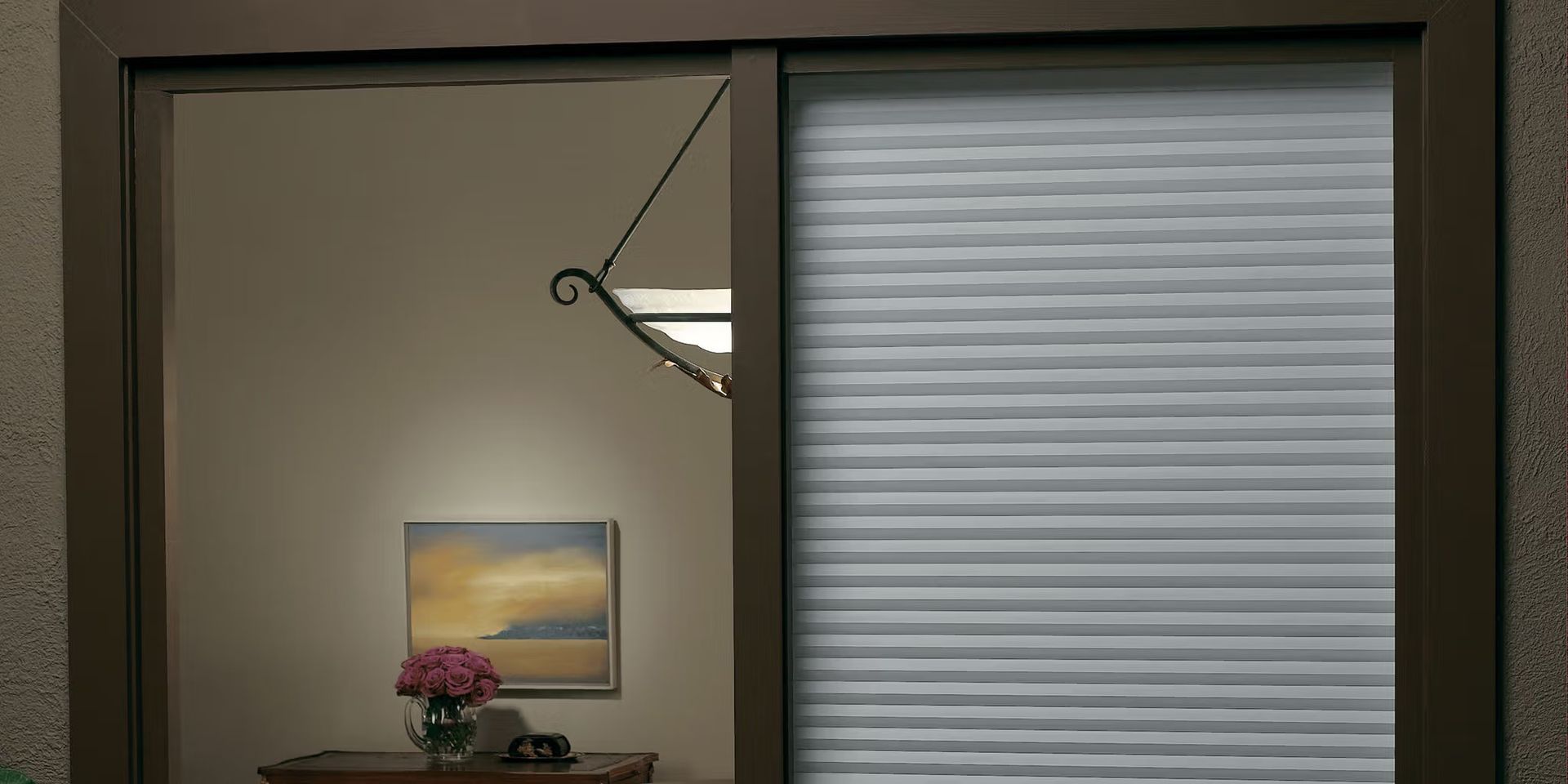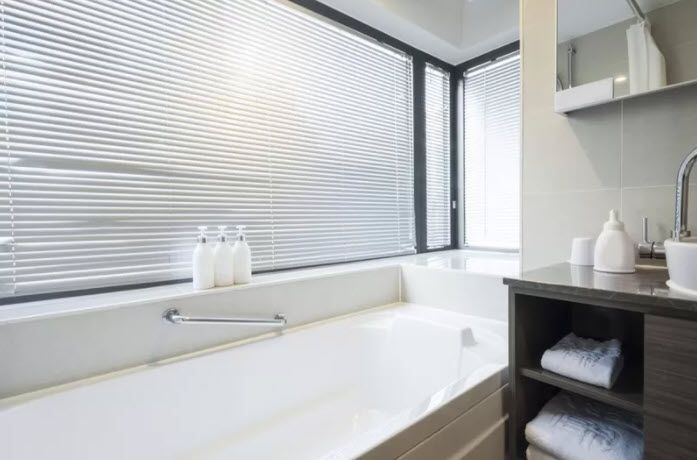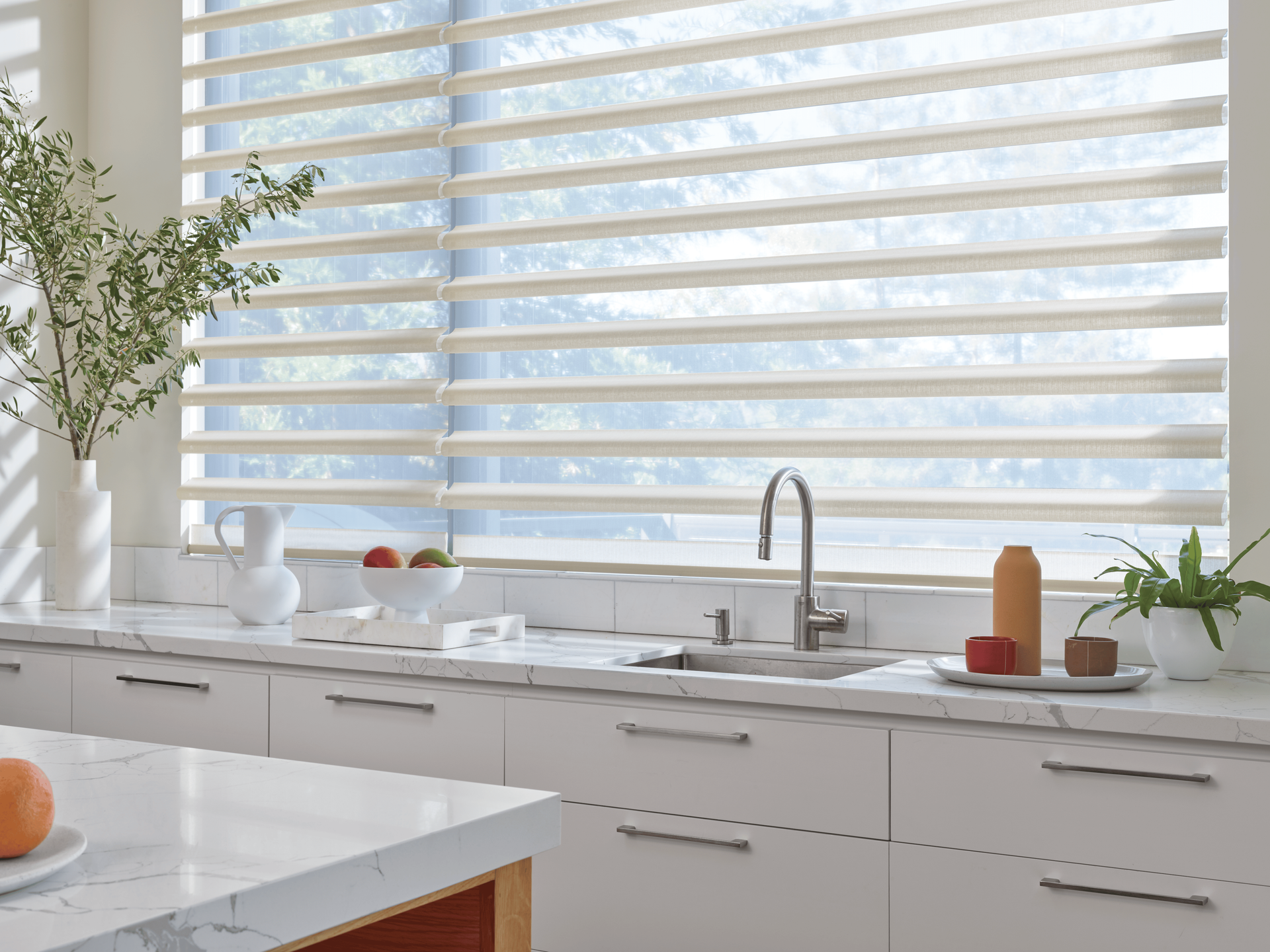Custom Shades vs. Custom Blinds:
What’s Better for Your Portage Home?
TLDR;
For most
Portage homes, custom shades offer better insulation, softer aesthetics, and room-darkening options, while custom blinds provide more precise light control, easier maintenance, and affordability. The best choice depends on the room, your lifestyle, and your design priorities.
Why Your Window Treatments Matter in Portage, MI
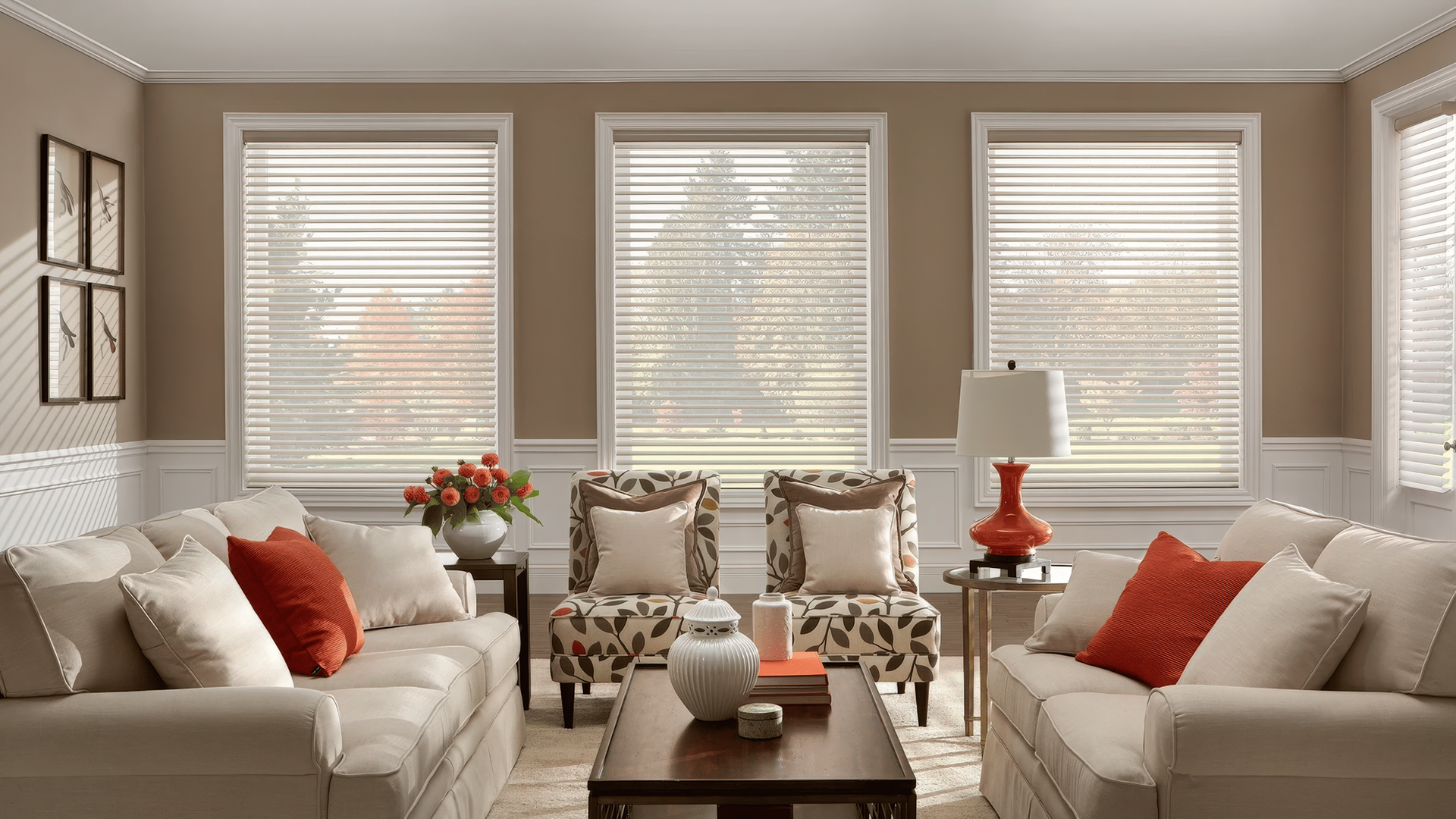
Portage, Michigan homeowners face unique challenges when choosing window treatments. From frigid winters to muggy summers, insulation and energy efficiency matter as much as style.
Key considerations:
- Midwest climate with long, cold winters and high summer humidity
- Sun exposure varies by room orientation, affecting heat and glare
- Home styles range from traditional colonials to modern ranches
- Local codes or HOA guidelines may influence exterior appearance
In short, your window coverings in Portage need to do more than look good. They should enhance comfort, control UV rays, and potentially reduce utility bills.
What Are Custom Shades?
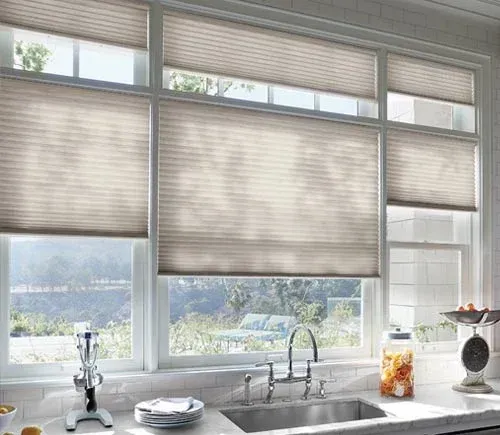
Custom shades are fabric-based window coverings that roll, fold, or stack. They provide a sleek, tailored appearance and are designed to filter or block light depending on your fabric choice.
Popular for their versatility, custom shades in Portage homes offer:
- Soft, clean lines that elevate home decor
- Insulation against temperature extremes
- Options for privacy and light diffusion
Types of Custom Shades Available
- Roller Shades: Minimalist design, excellent for modern interiors
- Roman Shades: Fold in neat pleats; offer elegance and depth
- Cellular (Honeycomb) Shades: Traps air, improving insulation—if you’re comparing honeycomb vs. pleated blinds, cellular shades provide significantly better thermal performance.
- Solar Shades: Reduces glare while preserving outside view
- Pleated & Layered Shades: Add texture and dimension
Pros and Cons of Custom Shades
Pros:
- Great for bedrooms, living rooms, and dining areas
- Blackout and light-filtering options
- Energy-efficient, especially cellular styles
- Wide range of fabrics, colors, and textures
Cons:
- Can be harder to clean (especially fabric materials)
- Fading may occur with constant sun exposure
- Premium designs may come at a higher cost
What Are Custom Blinds?
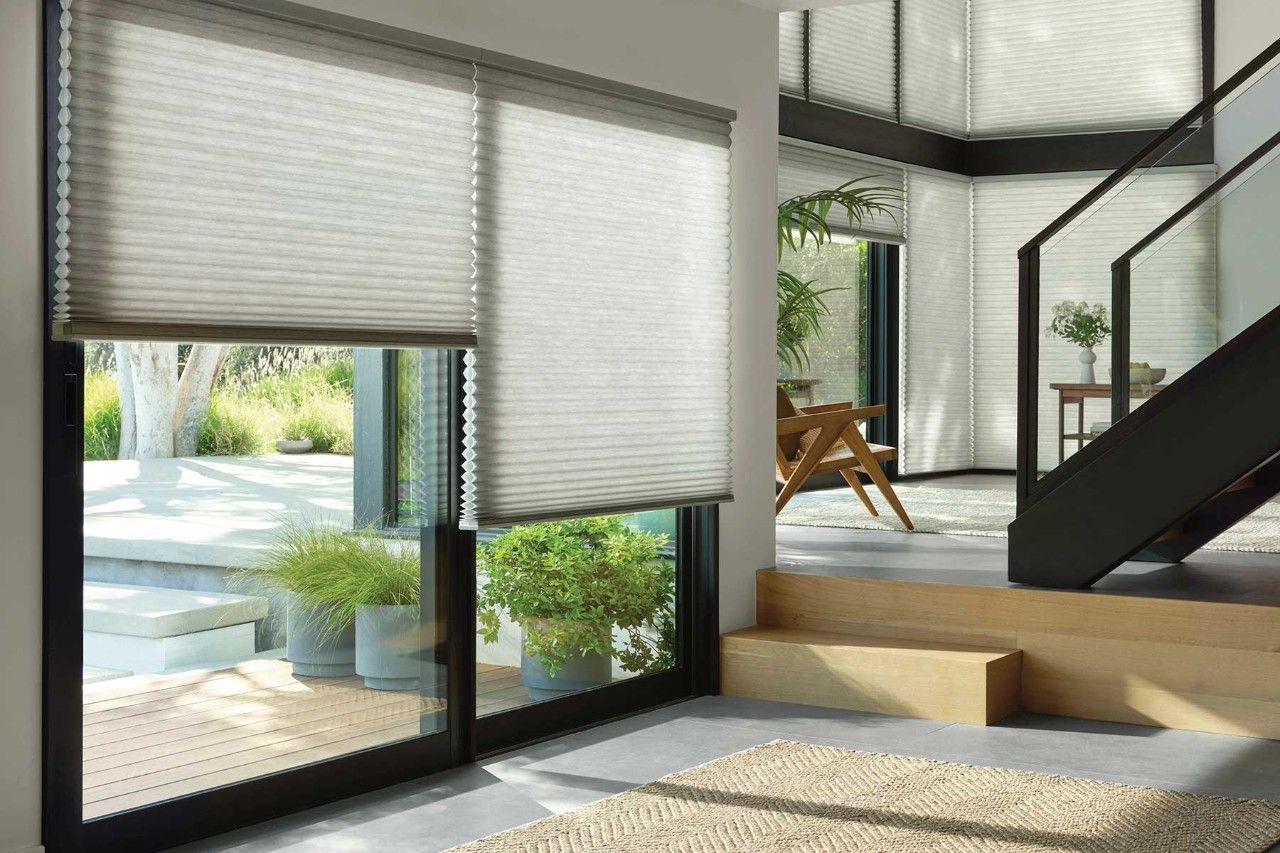
Custom blinds consist of horizontal or vertical slats that tilt to control light. They’re often made from wood, faux wood, aluminum, or vinyl and are favored for their practicality.
In Portage homes, blinds are especially useful in humid or high-traffic areas.
Types of Custom Blinds Available
- Wood Blinds: Offer warmth and classic charm
- Faux Wood Blinds: Moisture-resistant and budget-friendly
- Aluminum Blinds: Durable and sleek, ideal for utility areas
- Vertical Blinds: Excellent for sliding glass doors and large windows
Pros and Cons of Custom Blinds
Pros:
- Ideal for kitchens, bathrooms, and basements
- Easier to clean than fabric shades
- Provide adjustable privacy and light control
- Typically more budget-conscious than shades
Cons:
- Limited in style options compared to shades
- Can appear utilitarian or harsh in cozy spaces
- Less effective for insulation and blackout purposes
Side-by-Side Comparison: Custom Shades vs. Blinds
| Feature | Custom Shades | Custom Blinds |
|---|---|---|
| Cost Range | $$ to $$$ | $ to $$$ |
| Light Control | Moderate to Full (blackout) | Precise slat adjustment |
| Privacy | High | Adjustable |
| Energy Efficiency | Excellent (especially cellular) | Moderate |
| Aesthetics | Soft, fabric-centric | Structured, slatted look |
| Ease of Cleaning | Moderate to low | Easy (especially faux/aluminum) |
| Room Suitability | Bedrooms, living areas | Kitchens, baths, basements |
| Child Safety | Available in cordless | Cordless & wand options |
| Motorization | Fully compatible | Fully compatible |
Which Is Best for Each Room in Your Portage Home?
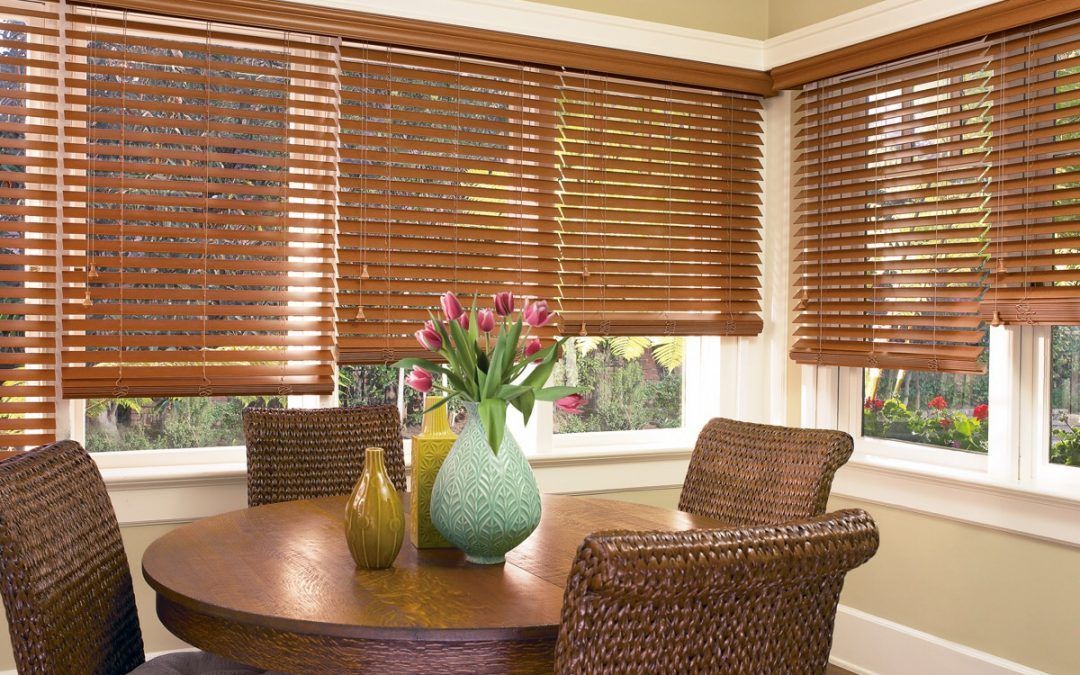
The best window treatment varies by space. Here’s how to match the right product with your room needs:
Living Rooms & Bedrooms
- Best Choice: Cellular or Roman Shades
- Why: They enhance ambiance, offer blackout for sleep, and insulate against Michigan winters—making them a great alternative to stylish blinds for living rooms if you’re seeking softness and insulation in your design.
Kitchens & Bathrooms
- Best Choice: Faux Wood or Aluminum Blinds
- Why: Easy to wipe clean, moisture-resistant, and durable
Basements & Utility Rooms
- Best Choice: Aluminum Blinds or Solar Shades
- Why: Handle humidity and resist mold
Sunrooms & Offices
- Best Choice: Solar Shades or Vertical Blinds
- Why: Minimize glare, manage heat gain, preserve views
What Do Custom Shades and Blinds Cost in Portage, MI?
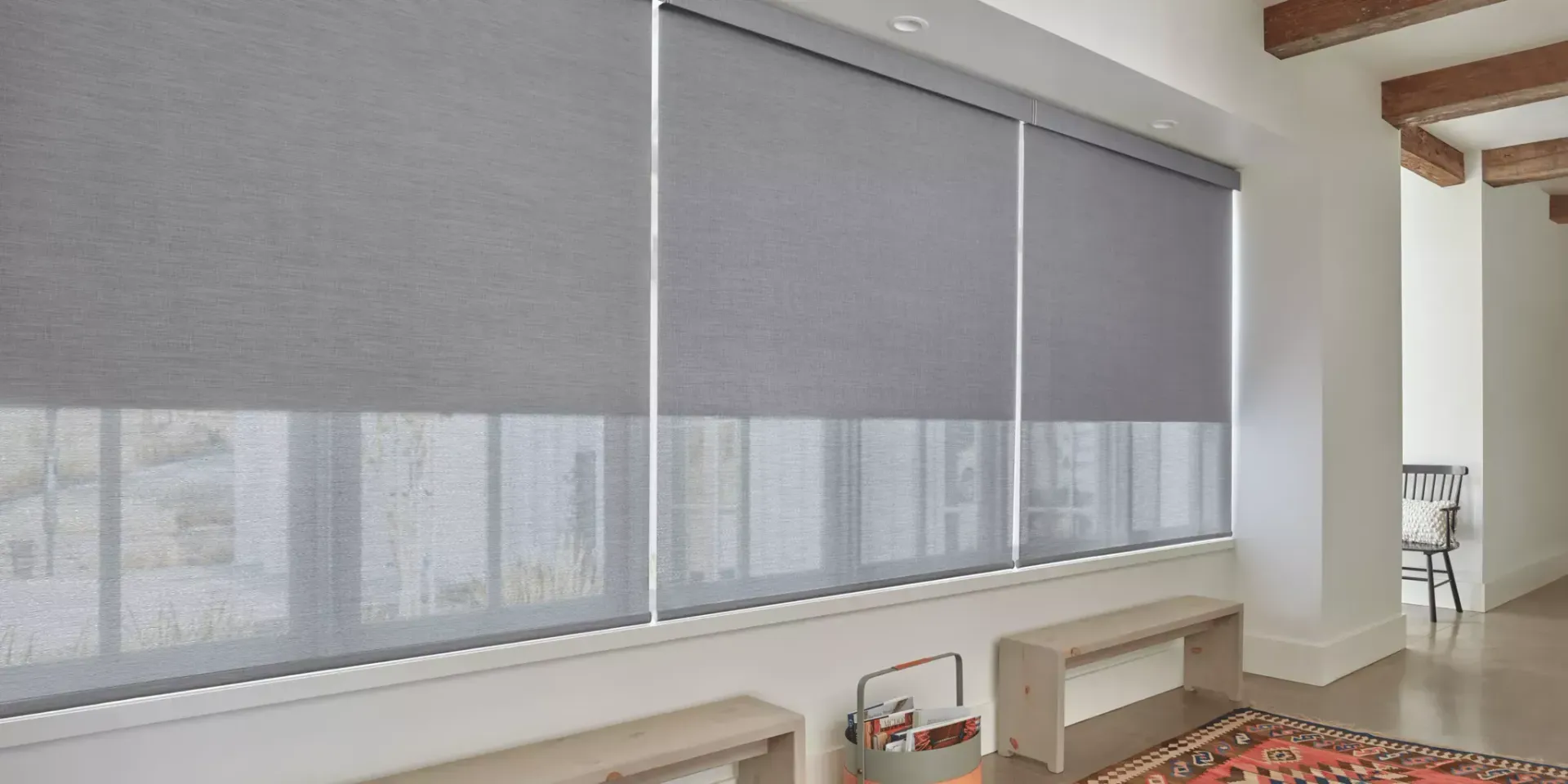
Prices vary based on materials, customization, and installation. Here's what Portage homeowners can expect:
Cost Breakdown by Type and Material
Entry-Level Estimates (Per Window):
- Roller Shades: $150 - $300
- Faux Wood Blinds: $100 - $250
Premium Options:
- Roman Shades: $300 - $600+
- Wood Blinds: $250 - $500
- Motorized Treatments: Add $200 - $500 per unit
Installation Fees:
- Professional install: $75 - $150 per window
- Some companies, like Love Is Blinds MI, offer free measurement and estimate services
Warranty & Service:
- Most local vendors provide 1- to 5-year warranties on both product and labor
Popular Custom Features to Consider
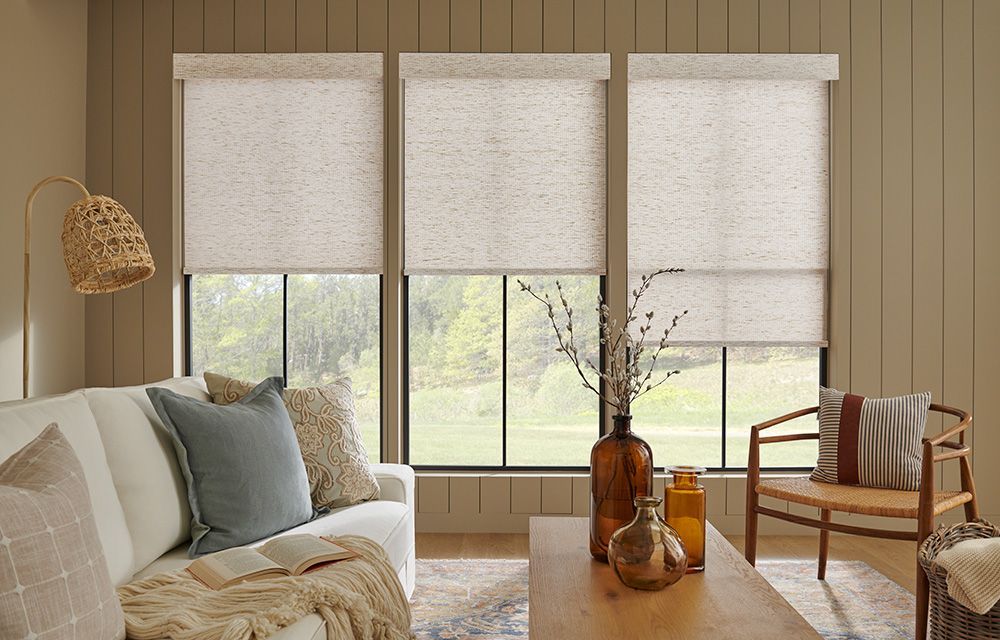
Cordless & Child-Safe Options
- Ideal for families with children or pets
- Prevents tangling and enhances minimalist look
Motorization and Smart Home Integration
- Integrate with Alexa, Google Home, or smartphone apps
- Schedule shades to raise/lower automatically
Custom Fittings for Unique Windows
- Arched, angled, or oversized windows? Both blinds and shades can be tailored for:
- Skylights
- Bay windows
- Patio doors
Installation & Maintenance Tips for Portage Homeowners
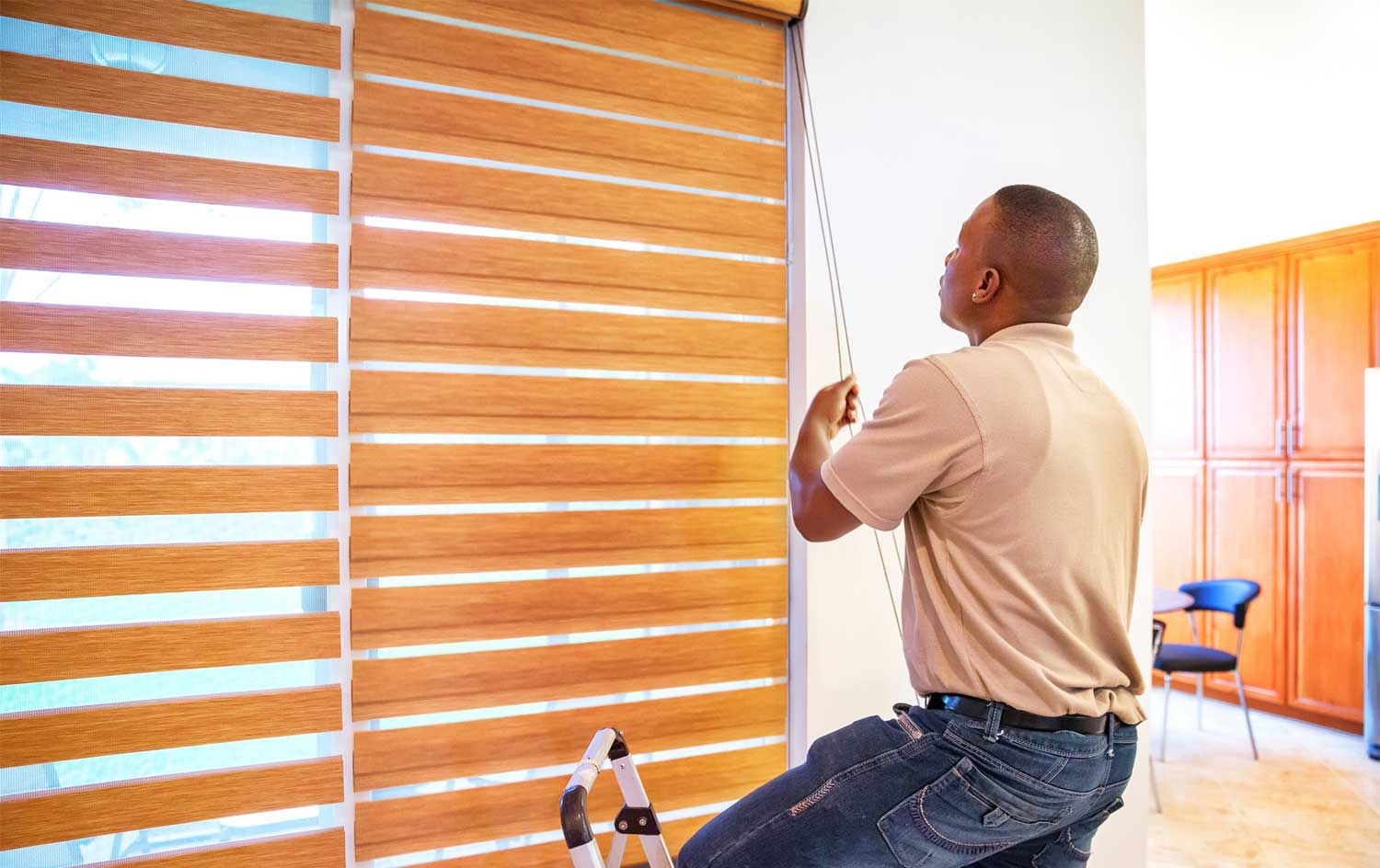
DIY vs Professional Installers
- DIY kits are available, but custom window treatments require precision
- Hiring experts like Love Is Blinds MI ensures correct fit and finish
Seasonal Maintenance Tips
Winter:
- Inspect for drafts around frames
- Use insulated shades to reduce heating costs
Summer:
- Clean blinds with a damp cloth monthly
- Consider UV-protective films for south-facing windows
All-Year:
- Gently vacuum shades using a brush attachment
- Tighten hardware and check motorization batteries every 6 months
Frequently Asked Questions


